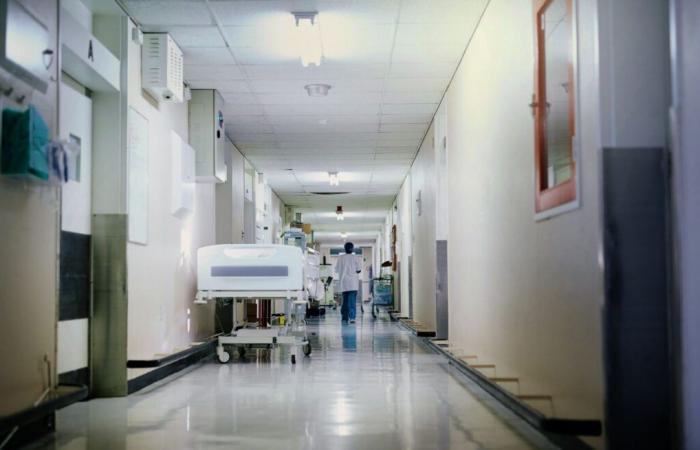My mother, Andrée Simard, died in disturbing circumstances at St-Mary’s hospital in December 2022. A few months later, I spoke publicly to denounce the quality of end-of-life care provided to my mother during his stay at this hospital. Following this intervention, our family received an official apology from the Minister of Health, Christian Dubé, while the establishment, preferring to remain silent, invited me to use the complaint process in force in order to ensure a fair judgment of the episode. After some thought, I decided to follow this path.
Today I share with you the results and my observations concerning the four reports from the different bodies which studied the matter.
After my public outing, the College of Physicians took the initiative of conducting an investigation. In summary, although the College did not find any ethical misconduct on the part of the doctors, it noted the following points:
— Poor communication between the family and the clinical team;
— A palliative care training problem for the healthcare team involved in Ms. Simard’s care.
I also filed a complaint with the CIUSSS West Island complaints commissioner, at two levels: against the doctors and against a nurse.
The medical examiner came to the same conclusions as the College of Physicians, while the commissioner did not find any breach concerning the nurse with whom I had an altercation. This nurse actually left my mother without medical supervision for almost six hours following this altercation, under pretexts that seem incongruous to me.
The commissioner’s response deadlines were never respected and it was only after mentioning that I wanted to submit my complaint to the Public Protector that I received a response the next day.
All these investigations are based on a principle: the word of one person against that of the other, and on the notes in the file, to which the complainant does not have access. For my part, I was entitled to these redacted notes thanks to lawyers that I instructed. Being alone in front of the institution, I was in some way doomed in advance.
The commissioner’s response illustrates that there is no direct responsibility on the part of the nurse. Paradoxically, the establishment recognizes gaps in its palliative care offering and has undertaken a review of it. An action plan is underway to improve this support.
It was only through the Public Protector that the analysis of the file took another turn. Several serious breaches were noted, including, among others:
— The absence of support for the family, as provided for in the end-of-life palliative care policy;
-— The absence of a nursing treatment plan (PTI);
— The absence of a validated and reliable scale to monitor the patient’s pain and track it in the file; •The absence of hourly rounds to assess the patient’s condition at night;
— Refusal to change nursing staff in the event of disagreement. Provided for in the 12 user rights.
I agree with these conclusions and am satisfied that, for the first time, a rigorous analysis has been carried out based on the laws and protocols that were not respected.
This whole process was extremely difficult. I sometimes doubted myself, after receiving answers affirming that everything had been done according to the rules. I felt that my repeated requests and my insistence had therefore damaged my relationships with the nursing staff.
It took more than two years of struggle. But I had to understand the workings of the complaints system and demonstrate that it is designed to protect professionals rather than ensure justice for citizens. I was deeply disappointed by the answers obtained, shaken, and sometimes I even doubted the reality of this nightmare I experienced.
Today I am appealing to the Minister of Health to review the complaints process. Is it really relevant that we have to go to the Public Protector for a problem to be really taken into account, based on laws and practices that are not respected? I also understood that the system is so complex and siloed that it is almost impossible to get a holistic view of it. A fact that I also noticed in the testimonies of the members of the Mortensilence group, which I set up. I would have liked to have been told: we will analyze your file completely, and provide you with the details of the breaches as a whole. I would have liked to feel supported. Only the Public Protector has succeeded in doing this!
In light of the conclusions of the Public Protector, several avenues are available to me, such as filing a complaint with the order of nurses or attempting an appeal against the hospital or Santé Québec. But I decided to stop here, take care of my own healing and move on. I just hope that when I reach the end of my life, I will be cared for with dignity and compassion.
I would like to thank everyone who supported me and gave valuable advice: you, dear members of Mortensilence, collaborators, journalists, doctors, organizations, lawyers. I invite victims and caregivers to fight for justice for their loved ones and to never accept the unacceptable. It’s worth it, even if it’s extremely difficult, because that’s how things can evolve.
In a few days I will disband the Facebook group, but will leave the website open for reference. I return to my private life, surrounded by those I love. I have the feeling of duty accomplished. I sincerely hope that I have succeeded in making things happen and have contributed, even if only a little, to helping my neighbor. If my fight was able to open doors and raise awareness, then it would all have had meaning.






